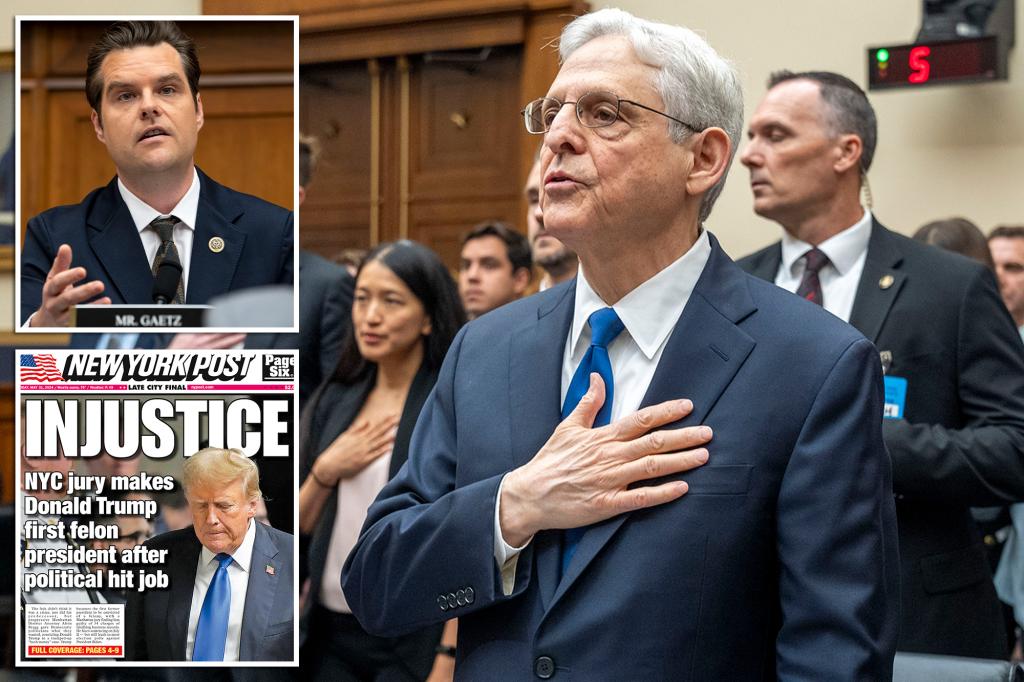House Republicans criticized Attorney General Merrick Garland during his first congressional hearing since former President Donald Trump was convicted in Manhattan. They accused the Department of Justice of coordinating with state and local prosecutions against Trump, labeling it as “coordinated lawfare.” Rep. Matt Gaetz questioned Garland about the DOJ’s communication with the prosecutors in these cases, but Garland maintained that the DOJ does not control these independent offices and emphasized that the attacks on the Justice Department are unfounded.
Gaetz pressed Garland on the communication between the DOJ and the prosecutors, accusing him of advancing a dangerous conspiracy theory by not providing the requested documents and correspondence between the DOJ and the various offices involved in the prosecutions against Trump. Trump was convicted on multiple counts of felony business fraud by a Manhattan jury, which was the first criminal case brought against a sitting or former U.S. president. The GOP criticized the prosecution by Manhattan DA Bragg and raised concerns about potential conflicts of interest, such as Judge Merchan’s donation to Biden’s campaign and his daughter’s involvement in Democratic political consulting.
Despite the GOP’s allegations, Garland defended the DOJ’s actions and emphasized that they would continue to do their job free from political influence. He refused to comment on specific cases or provide audio recordings of Biden’s interview with special counsel Robert Hur, citing the need to maintain the independence and integrity of the Justice Department. The accusations of coordination or corruption in these cases have raised questions about the impartiality of the DOJ and the rule of law.
The clash between House Republicans and Attorney General Garland highlighted the ongoing political tensions surrounding Trump’s legal troubles and the integrity of the DOJ. Republicans accused Garland of not being transparent or cooperative with their requests for information, while Garland defended the DOJ’s independence and commitment to upholding the rule of law. The involvement of judges, prosecutors, and political consultants in these cases has added to the controversy and raised concerns about potential conflicts of interest or bias affecting the outcomes of the legal proceedings.
The ongoing scrutiny of the DOJ’s handling of cases involving Trump and other political figures reflects the broader division and distrust in the American political system. Garland’s testimony and responses to the GOP’s accusations illustrate the challenges faced by the DOJ in maintaining its credibility and independence in politically charged cases. The accusations of coordinated lawfare against Trump and the refusal to provide requested information have fueled further speculation and criticism from Republicans, further complicating the already contentious legal proceedings surrounding Trump’s conviction and potential future cases. As the political and legal battles continue, the implications for the rule of law and the confidence in the justice system remain uncertain.


